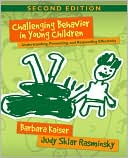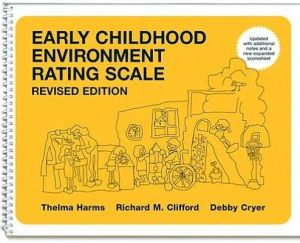Challenging Behavior in Young Children: Understanding, Preventing, and Responding Effectively
Search in google:
Renowned authors Barbara Kaiser and Judy Sklar Rasminsky once again help teachers to discover effective ways to address challenging behavior in the classroom! Making full use of Barbara Kaiser's 30 years of experience as a child care director and teacher, the Second Edition of Challenging Behavior in Young Children provides an in-depth look into the latest research on understanding and preventing challenging behavior and offers practical and effective strategies for responding to it, including positive behavior support and functional assessment, as mandated by IDEA.Based on the authors’ 40-page booklet Meeting the Challenge (1999), this new edition maintains the personal touch and real-life examples teachers have grown to rely on. It includes new chapters on relationships and inclusion as well as the latest information on risk and protective factors, culture, the brain, self-reflection, working with families, and bullying.Challenging Behavior in Young Children emphasizes the teacher’s role in the behavior of children, helping students and educators to reflect on their own values, feelings, and actions. The result is an invaluable resource for everyone involved in the education of young children.
Ch. 1What is challenging behavior?9Ch. 2Risk factors20Ch. 3Protective factors41Ch. 4Behavior and the brain47Ch. 5Relationship, relationship, relationship58Ch. 6Understanding the child's family and culture79Ch. 7Preventing challenging behavior with the right physical space and program101Ch. 8Preventing challenging behavior with the right social context123Ch. 9Guidance and punishment146Ch. 10The WEVAS strategy160Ch. 11Positive behavior support and functional assessment179Ch. 12The inclusive classroom196Ch. 13Working with families and other experts217Ch. 14Bullying233App. AThe functional assessment observation form257App. BThe functional assessment A-B-C chart262








